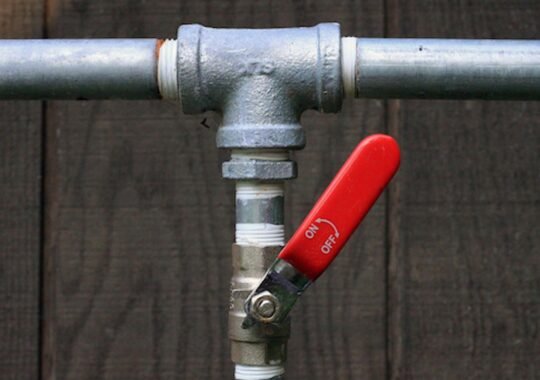Key Takeaways
- Consistent oil changes have a direct and positive impact on engine health, longevity, and reliability for any vehicle.
- Making the right choices about oil types and service providers helps maintain fuel efficiency, reduce emissions, and prevent costly breakdowns.
- Recognizing the early warning signs that your car needs an oil change can help you avoid serious mechanical problems.
- Recent advancements in oil technology mean drivers today have more effective choices than ever before, adapted to their unique driving habits.
- Staying well-informed about oil change best practices helps you avoid common mistakes and unnecessary repair bills.
Why Oil Changes Matter For Every Car Owner
Regular oil change services might seem like just another maintenance item, but they are truly the backbone of engine performance and longevity. Engine oil not only creates a lubricating barrier between moving metal parts but also serves as a cleaning agent, removing carbon and sludge that can build up with every drive. Over time, heat, friction, and contaminants cause oil to break down and lose its effectiveness. Without timely changes, you risk your engine running with dirty or insufficient oil, which can lead to accelerated wear, diminished performance, higher operating temperatures, or even total engine failure. It’s no surprise that auto professionals often point out how neglecting routine oil changes is one of the most common causes of serious engine problems.
For those seeking targeted local advice, valuable insights found in articles about oil change in Victoria, Canada highlight what to expect and demand from an oil change service. While specific recommendations may vary depending on the climate or driving style, the essential reasons for maintaining regular oil changes are consistent worldwide. Investing in this simple habit strengthens your car’s dependability, safety, and lifetime value, making it a pillar of smart vehicle ownership.
How Often Should Oil Be Changed?
The frequency of oil changes remains a hot topic among drivers and mechanics. While the traditional 3,000-mile interval still holds for older vehicles using conventional oil, advancements in synthetic lubricants, combined with superior engine engineering, have significantly extended the recommended service intervals. Most manufacturers now recommend oil changes every 5,000 to 10,000 miles, with some vehicles even stretching to 12,000 miles under optimal conditions. According to Car and Driver, these extended intervals are primarily based on ideal driving conditions—like consistent highway speeds and temperate climates—which many drivers don’t regularly experience.
Your unique driving habits truly matter. If you frequently make short trips in stop-and-go traffic, haul heavy loads, or drive in dusty or cold environments, your engine will likely benefit from more frequent oil changes. Keeping a maintenance log, checking your oil regularly, and understanding your car’s service schedule are essential. Consistently following these guidelines leads to a healthier engine and lowers the risk of sudden, expensive repairs. Relying too heavily on “rules of thumb” can lead to overlooked maintenance, an issue that can be easily prevented with a personalized schedule.
Signs It’s Time For An Oil Change
- Dashboard warning light: Modern vehicles often eliminate some of the guesswork associated with oil maintenance by illuminating an “oil change required” or “check engine” light. If this light activates, it could signal a range of issues, from low oil levels to deteriorated oil quality. Ignoring these indicators can risk engine damage or void your warranty.
- Dirty or dark oil: Checking your dipstick regularly reveals whether your oil remains clear and amber or has turned dark, gritty, and thick. As oil ages, it loses its cleaning ability, allowing contaminants to build up. Dirty oil signals a clear need for replacement and should not be delayed.
- Noisy engine: A well-lubricated engine runs quietly. Unusual ticking, knocking, or rumbling noises can mean that oil isn’t reaching all key areas or has lost its lubricating qualities, putting your engine at risk.
- Excess exhaust smoke: More smoke from the tailpipe—especially with a bluish tint—often indicates burning oil, suggesting either overused oil or a mechanical problem.
- Unusual odors, such as burnt oil smells inside the car, indicate that the oil is not circulating or cooling as it should, and immediate attention is required to avoid further damage.
Staying tuned in to these early signals can save money and frustration. Don’t ignore minor symptoms; routine checks and timely oil changes are a fast route to peace of mind.
Choosing The Right Oil Type: Conventional vs. Synthetic
Choosing the right oil involves more than just comparing prices at the auto shop. Today, many vehicles benefit from new oil blends that offer improved temperature resistance, enhanced engine protection, and extended oil change intervals. Conventional oil works well for less demanding engines but tends to break down more quickly under stress and extreme weather. Synthetics, meanwhile, are engineered at the molecular level to provide maximum lubrication and minimal breakdown, even in high-heat or high-mileage scenarios.
The Edmunds guide to oil changes outlines these differences in detail, emphasizing that synthetic oils maintain viscosity, resist evaporation, and reduce deposits better than conventional options. Modern engines, especially those with turbochargers, variable valve timing, or tightly engineered internals, almost always require synthetic oils for optimal performance. Ultimately, always use oil that matches your vehicle’s manual specifications—choosing otherwise can result in reduced efficiency and even potential warranty disputes.
How To Choose A Trustworthy Oil Change Service
- Professional credentials: Look for service providers that display certifications or employ ASE-certified (Automotive Service Excellence) technicians. This ensures mechanics have up-to-date knowledge and follow best industry practices.
- OEM specifications: Confirm that the shop uses oil and filters that meet or exceed your manufacturer’s requirements. Using subpar products might save a few dollars in the short term, but can have costly repercussions.
- Transparent pricing: Reputable centers provide clear, itemized estimates so you know exactly what you’re paying for. Hidden fees or ambiguous charges should raise red flags.
- Service extras: Some locations go beyond just swapping out your oil, offering additional checks on tire pressure, belts, hoses, and fluid levels. These add-on services significantly contribute to your vehicle’s overall reliability and can help identify potential issues early.
- Local reputation: Tap into online reviews and word-of-mouth recommendations. Seek out customer experiences that mention honesty, quality, and fast service, not just low pricing.
Don’t be shy about asking questions or clarifying concerns before authorizing service. Trustworthy oil change shops will gladly explain options and include you in the decision-making process.
Common Myths About Oil Changes, Debunked
- Myth: “Oil should always be changed every 3,000 miles.”
- Reality: While some still believe this, it’s rarely necessary with today’s advanced synthetic oils and engines. Many vehicles have intervals of 5,000 to 10,000 miles without compromising safety or performance.
- Myth: “Black oil means you need a change.”
- Reality: Oil darkens as it does its job, capturing contaminants. Check your oil visually and by touch—if it feels gritty or thick, it’s a better indicator that it’s time for a change.
- Myth: “Any oil brand will do.”
- Reality: Not all oils are created equal. Always match your manufacturer’s viscosity and quality guidelines. Skimping here can lead to long-term mechanical troubles.
How Oil Change Habits Affect Long-Term Car Value
Maintaining oil changes according to schedule is more than just basic car care—it’s a shield against long-term wear and the declining value that plagues poorly maintained vehicles. Used car buyers and dealers look for complete, detailed maintenance records when making purchasing decisions. Cars with evidence of routine, professional oil changes fetch higher prices, stay on the market for less time, and are more likely to pass pre-sale inspections with flying colors. Keeping receipts and using manufacturer-approved oils ensures your car’s value remains as strong as possible for years to come.
Modern Advances: Technology And Oil Service Reminders
The evolution of automotive technology means that taking care of regular oil changes has never been more convenient. Many modern cars now feature built-in oil life monitoring systems that assess oil quality in real time based on your actual driving conditions, not just simple mileage counters. Dash displays and app-based notifications can remind you of upcoming maintenance, while digital service logs make record-keeping effortless.
Still, relying solely on technology isn’t foolproof. Glitches, missed alerts, or out-of-date software can all contribute to missed maintenance. Combine those tech-savvy reminders with periodic visual checks and hands-on awareness—the classic “trust but verify” approach. Paying attention to both machine and human intuition results in better, safer vehicles and happier drivers for the road ahead.
The science of engine protection continues to advance, but the basics remain true: timely, high-quality oil changes protect your vehicle’s most vital components. Following best practices, staying alert to warning signs, and entrusting your vehicle to reputable professionals all serve to keep engines running strong, mile after mile.





